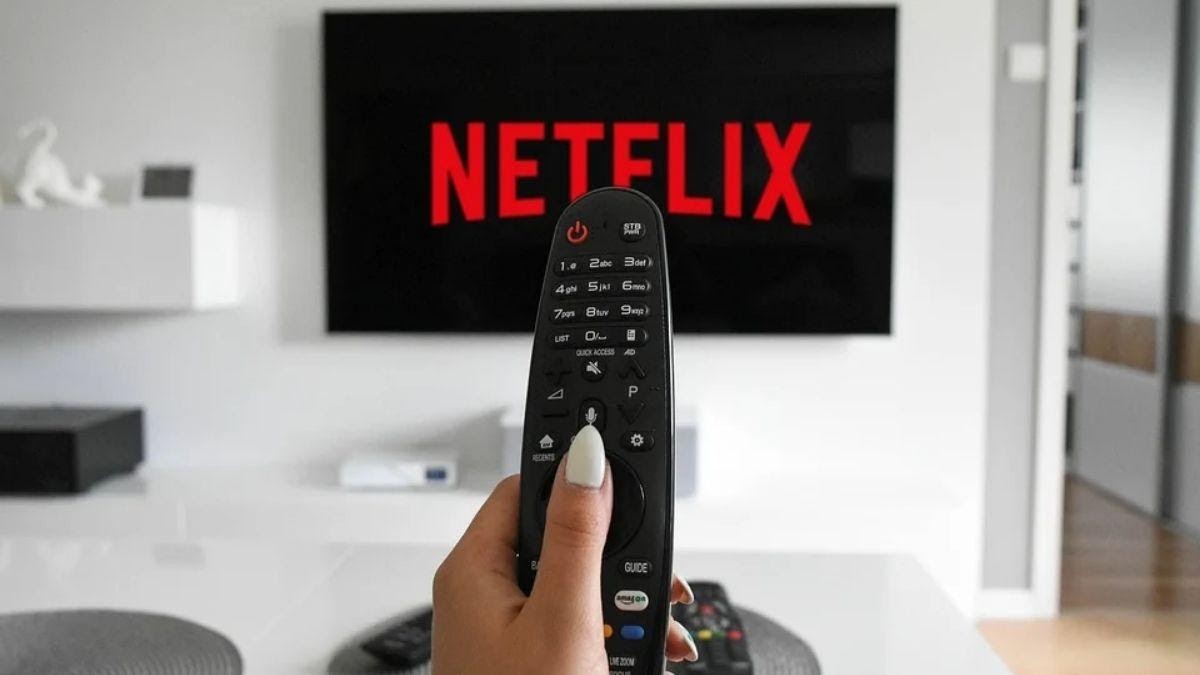Like most people, you love Netflix but probably want to unblock more content so that you can enjoy it even more.
Well, if you look up how to do that online, you'll see many online articles saying that VPNs are the best tools for the job. But some people also seem to think that Tor is a good solution too.
So which one should you use then?
We'll offer you a conclusive answer in this quick article.
Can You Unblock Netflix with a VPN?
Yes - a VPN is an online service that hides your IP address. Since it reveals your geo-location (what country and city you are from), stopping Netflix from seeing it is necessary if you want to unblock titles from different countries.
How does a VPN "hide" your IP, though?
It's pretty simple - it just routes it through a VPN server that sits between your device and Netflix, like so:
Device - ISP Network - VPN Server - Netflix.
It basically acts like a middleman, so Netflix will think your traffic is coming from the VPN, not your device. Because of that, it will only see the VPN's IP address.
So you just need to use a VPN server from a country where the content you want to unblock is available - like the US for Dexter or the UK for Doctor Who. You may also check VPNs recommendation for Canadians in case you live in Canada and want to use it.
The Only Problem - Not All VPNs Can Unblock Netflix
Netflix can detect VPN IPs, and redirect people who use them to the Netflix proxy error page. The only way a VPN can avoid detection is to regularly refresh its IP addresses. Doing that means the provider has to lease new IPs from the data centers and ISPs it work with.
That's easier said than done, though, since refreshing IPs isn't always cheap. So, not all VPNs can do that very often, meaning only a few providers are actually able to unblock Netflix 24/7.
If you need help finding the best VPNs to unlock Netflix, just follow that link and use StreamCatcher. It's an online tool from ProPrivacy that tells you what countries a Netflix title is available in. Besides that, it recommends VPN providers that can actually unblock Netflix. The suggestions are 100% accurate because they're backed by ProPrivacy's data, one of the leading VPN review sites on the web.
Aren't VPN Speeds Too Slow for Netflix?
Usually, no, though you might experience annoying slowdowns if your original speeds are slow (30-40 Mbps). If that happens, here's what you can do to improve your VPN speeds:
-
Use lightweight protocols (WireGuard, IKEv2, L2TP/IPSec, and SoftEther) instead of OpenVPN. If you can only use OpenVPN, use it over UDP instead of TCP.
-
Connect to servers that are close to your geo-location. If you're from Japan and want to unblock Netflix US, pick a server on the West Coast instead of the East Coast.
-
Unblock Netflix with a VPN over wired connections instead of WiFi. That way, weak WiFi signals can't slow down your VPN speeds.
-
Use split tunneling to force the VPN to only route Netflix traffic. The less data it has to encrypt and decrypt, the smoother your speeds will be.
Can You Unblock Netflix with Tor?
Judging by how Tor works, it seems like you should be able to do that. Just like a VPN, it hides your geo-location by preventing Netflix from seeing your real IP address.
Despite that, official Tor documentation says that the Tor network isn't able to unblock Netflix. Apparently, you'd get a proxy error message. The document does say that the claim was last checked in 2017, so we tried it ourselves.
Well, we didn't get a proxy error. Instead, we were redirected to this page.
It kind of seems like Tor has an issue with running HTML5 videos on Netflix - which is weird since we didn't have that problem on YouTube. We found a few other Tor users complaining about this issue on Reddit, but couldn't find a solution.
We ran multiple tests and always ended up on that page. So, our tests show that no, you can't unblock Netflix with Tor.
Even If You Can Unblock Netflix, It's Not Worth It
Tor just wasn't built for streaming. Instead, its main goal is to offer decent Internet privacy. If try to stream anything with Tor, you'll deal with annoyingly slow speeds. We ran multiple tests, and even when using nearby servers, we only averaged 1-2 Mbps speeds. That's way below the minimum 25 Mbps Netflix recommends for Ultra HD streaming.
Why are the speeds so slow, you ask?
We believe it's because:
-
Tor encrypts and decrypts your traffic at least three times (it bounces it through at least three servers). That really takes its toll on your speeds.
-
There aren't enough Tor servers for how many Tor users there are. According to current statistics, there are roughly 6,500 servers and nearly two million users. There's definitely not enough bandwidth to go around.
Plus, even if you ignore the slow speeds, changing your geo-location with Tor is really inconvenient. You can't pick a server from a list like you do with VPNs such as NordVPN or ExpressVPN. Instead, you have to click the SSL padlock icon next to the URL bar, and keep hitting New Circuit for this Site until you get the exit server you want (thee fourth dot on the line).
Sometimes, you might be lucky and get the right geo-location with just one try. Other times, it can take up to 20 tries or more, which gets frustrating fast. For example, it took us 25 tries to get an exit server from the US so that we could try unblocking Netflix US.
What's Your Take on This?
Do you think VPNs are the best way to unblock Netflix, or do you believe Tor can be a decent option if you optimize its speeds enough? Or do you use other unblocking methods?
Please let us know in the comments below. Also, if you found this article helpful, we'd be really grateful if you would share it on social media.















